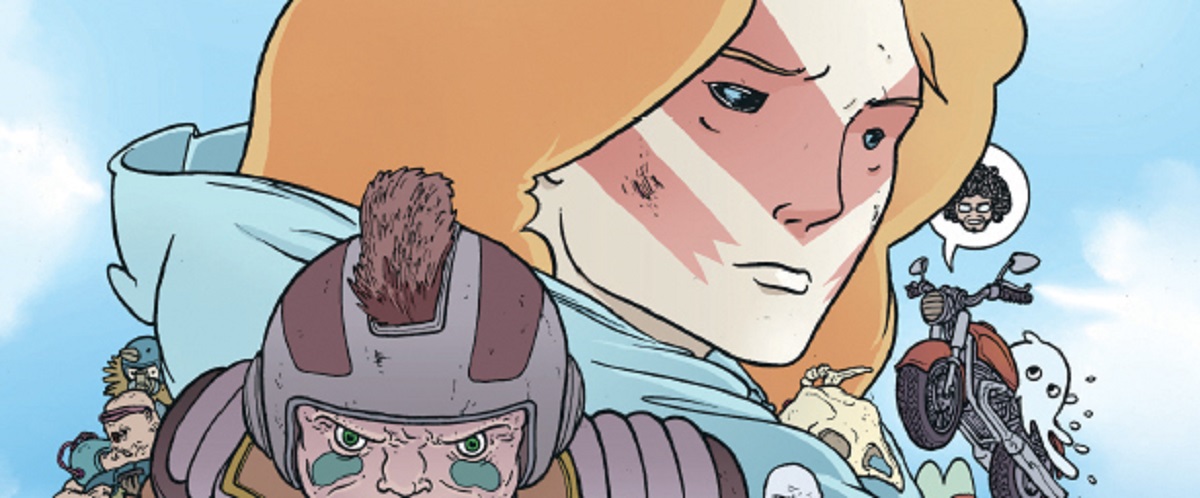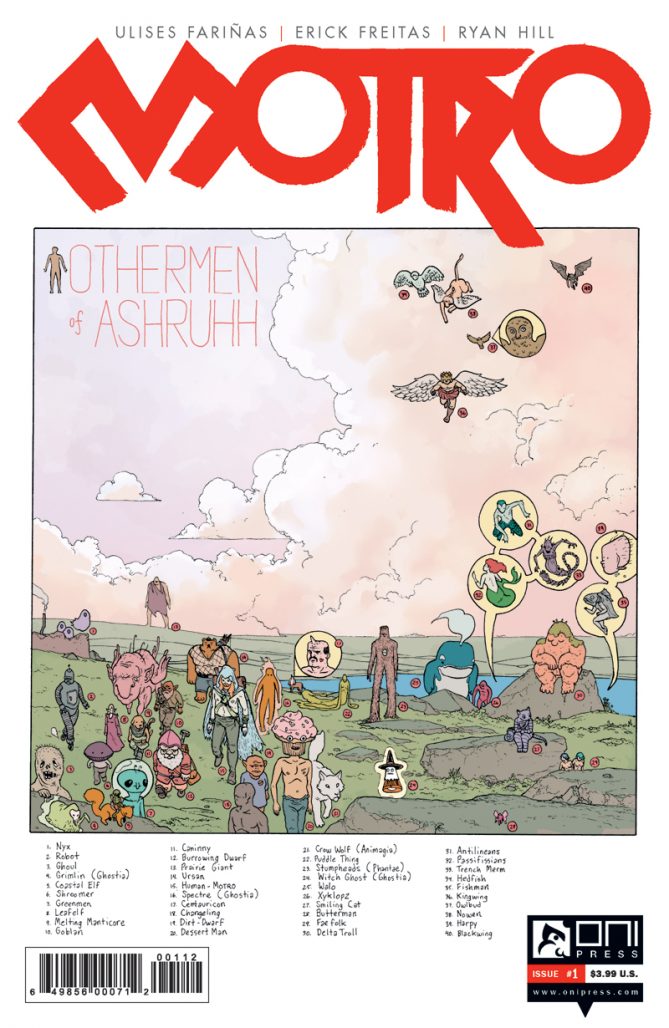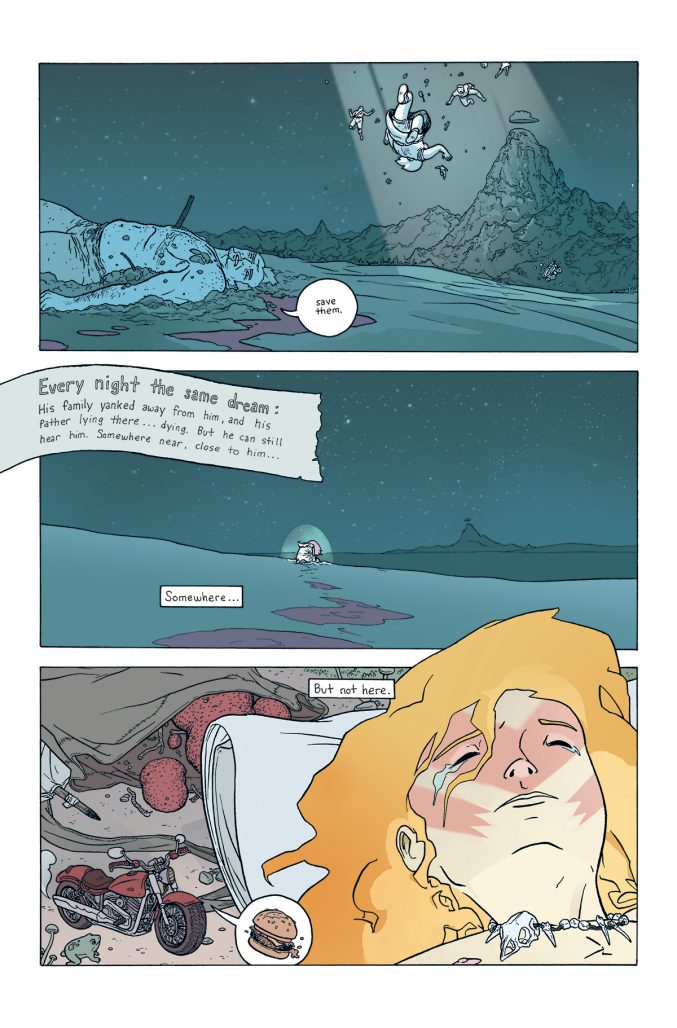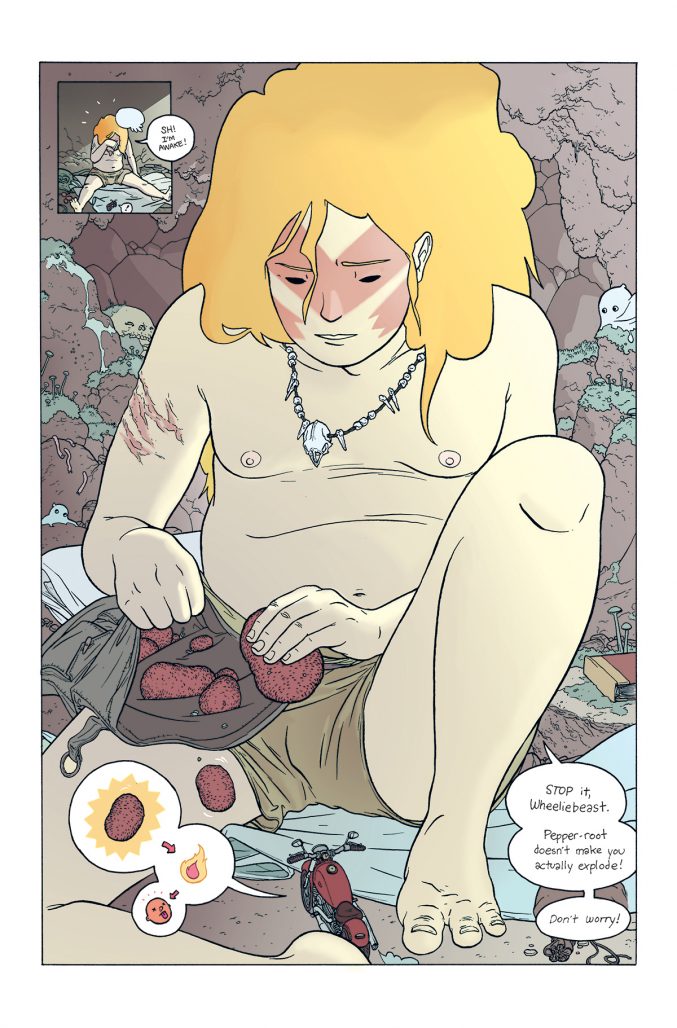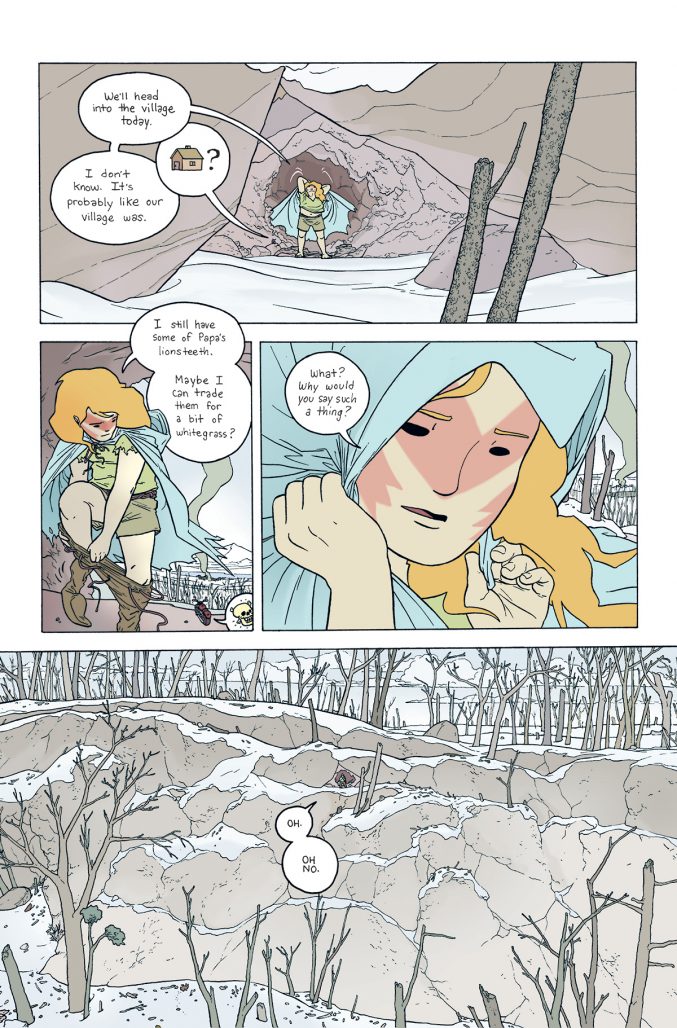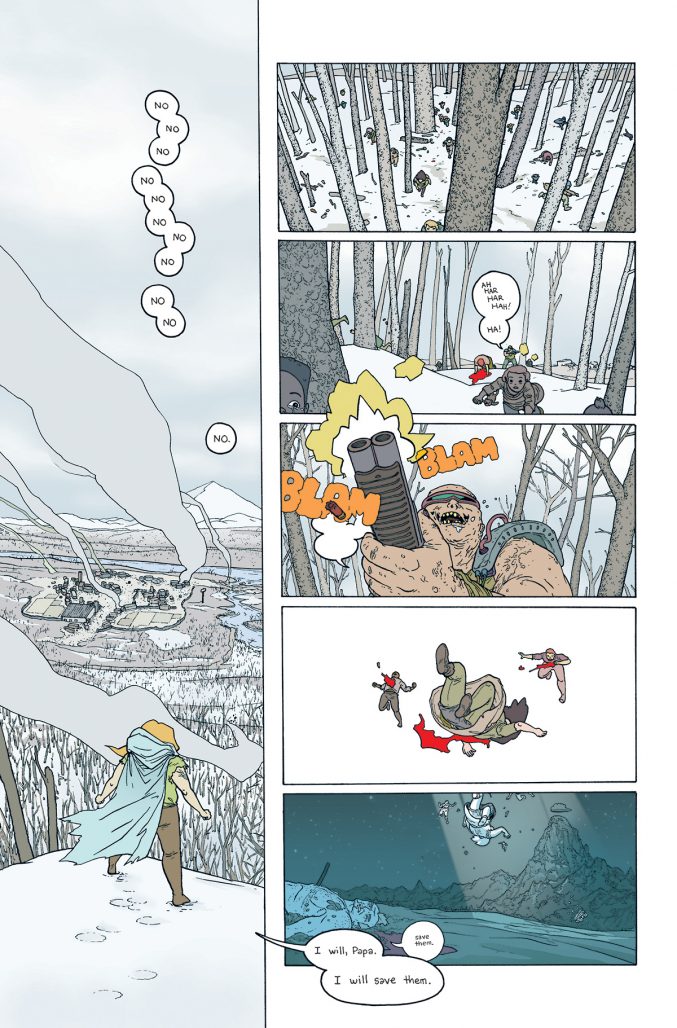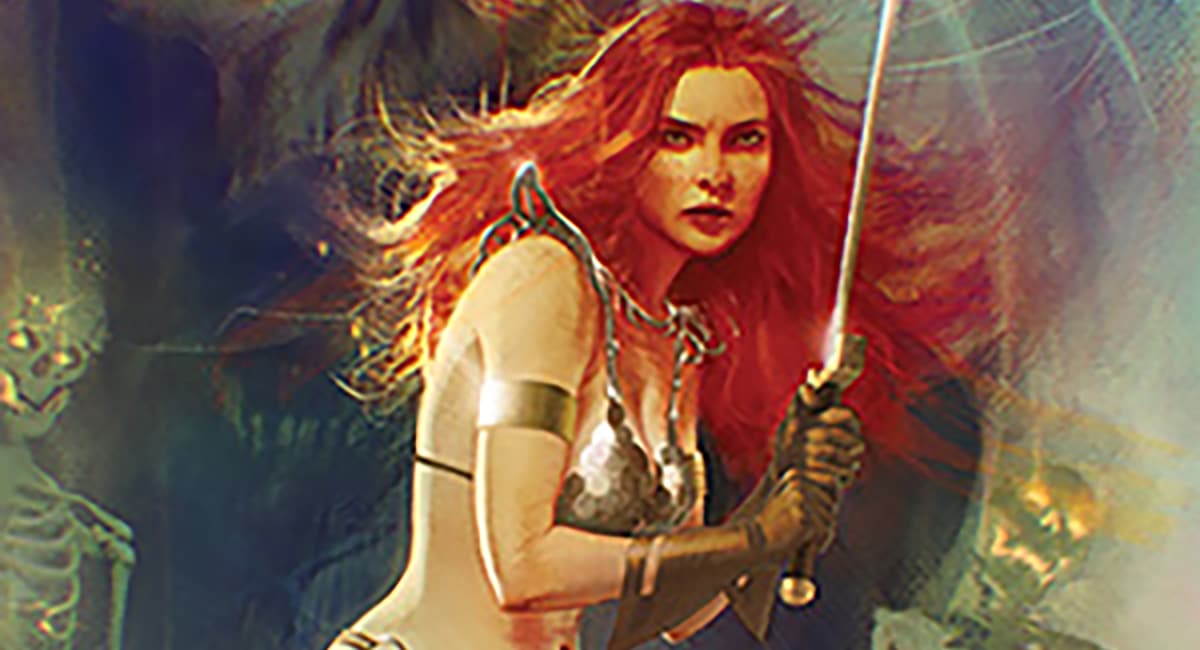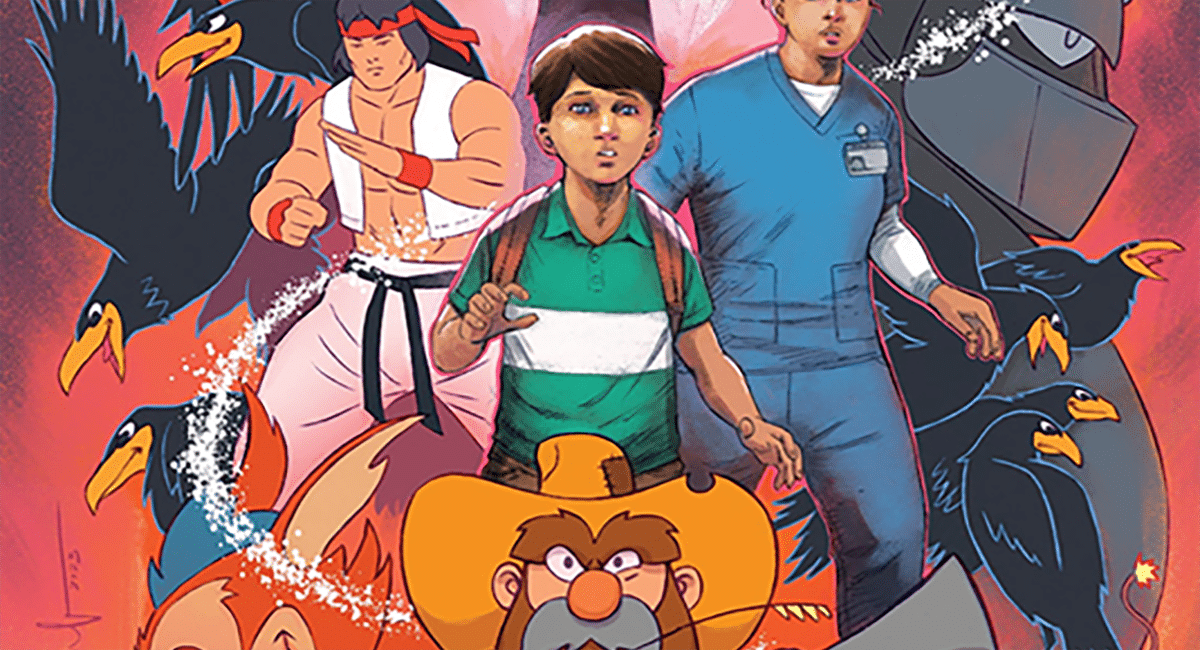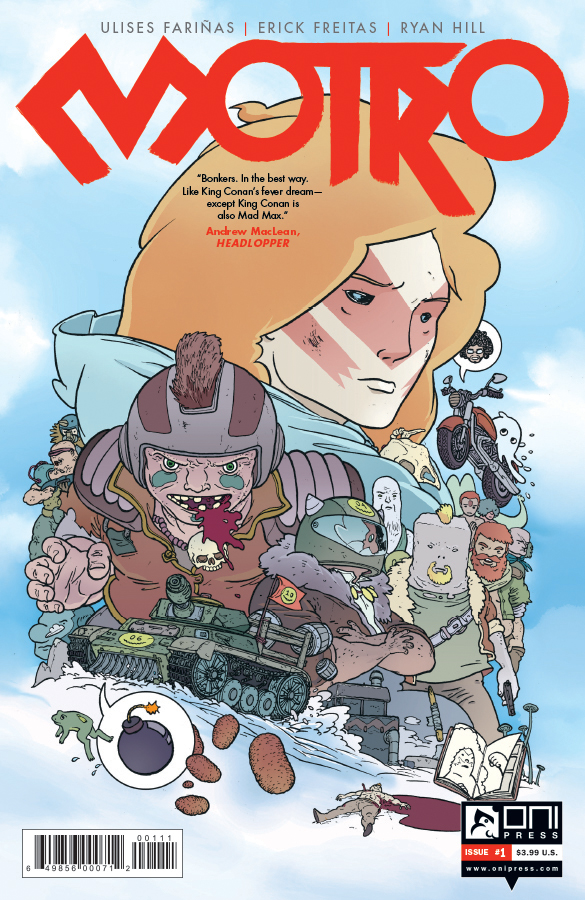
Recently, the Comics Beat sat down with Fariñas to discuss the themes and the long term plans for MOTRO.
Alex Lu: Ulises, you’ve been working on MOTRO for a long time now. In a previous interview, you said you started working on it when you were twenty. You also mention that in that original rendition of the title, there was a meta element to the story– our hero’s innocence is challenged by his father and by you as the creator. There’s an element of determinism to that concept. I think it remains present in this new version of the story because our hero is motivated to protect the local population because his deceased father asked him to. How do you think your views on the ideas of free will versus outside influence have changed between the two iterations of this story?
Ulises Fariñas: I don’t believe in free will. It’s pretty difficult for me to reconcile a deteministic universe with humans having this magic ability to defy the laws of physics, as we understand them. In a way, telling stories puts a neat beginning-middle-end on understanding the chaos of our lives, and in the same way as i’m a storyteller, so is Motro. To remove oneself from the uncontrollable maelstrom of being alive.
Lu: Ulises, what is your co-writing process like with Erick Freitas? How do you divide the labor that goes into the book, especially considering you’re drawing it as well, Ulises?
Fariñas: Erick and I usually talk on the phone and go over the major goals of the story, what stories its most similar to, and what individual moments are most important. Then one of us writes a draft of the script, it goes back and forth until its polished, and finally when i begin drawing i completely throw that away and just make it work however i want to, using the script as a map.
Lu: In that same interview with SKTCHD, you describe MOTRO as a meditation on masculinity– how “men have to learn to be more and more disconnected, unemotional, violent to be considered masculine.” To take the discussion a step further, how do you think this cultural expectation affects men, either positively or negatively?
Fariñas: I think it affects them almost completely negatively. I definitely believe in masculine and feminine energies, and i’m often found feeling not one gender or another, and that my outward ‘public’ persona is just that – a persona. It is useful for (comics) business, for better or worse, to still navigate these mostly straight cis-male arenas in what they understand most easily. But i look forward to a world where one can feel more safe to show the world how they really feel, without the fear of their father or brother or male friends alienating you or abusing you.
Lu: Bringing it back into comics, we see this push for disconnected and unemotional violence in many of the stories that hit LCS shelves every week– there is no superhero book without some level of physical conflict involved in the story. You yourself have worked on a number of titles such as Dredd which intimately deal with those ideas. How have you approached physical conflict in your previous works and in what ways, if any, do you think it challenges stereotypical notions of masculinity?
Fariñas: Violence is a short hand for conflict resolution, often times automatically in comic stories. I find it ironic, that often, I’ve spoken to many writers who have never experienced violence directly. I’ve had my teeth punched in because of a fight I started, I’ve been bullied and thrown around, I’ve had physical violence in my family.
In books like Judge Dredd, one of the difficult things about writing a licensed book like that, is really trying to show that the character wrestles with their actions, even if they are numb to their own violent lives. Erick and I succeeded in creating young girls who accompany Judge Dredd, who are most definitely not numb to the violence. In many ways, they are the conscience of the main character.
I’ve been working on a pitch recently, that i’m hoping will almost completely eschew violence as a resolution for the main character, so i look forward to developing that idea.
Lu: What is your collaborative process with colorist Ryan Hill like? The original version of MOTRO was purely black and white. What changed about the way you envisioned the world when translating it into color, Ulises?
Fariñas: I usually just let him do what he wants, and just make specific comments for particular characters or environments, like “This dragon should be blue and white,”. But otherwise, Ryan is extremely talented in finding the story that exists in color itself, and i prefer to just let him bring his ideas to the book.
Lu: How did the two of you end up taking MOTRO to Oni? Ulises, was there any thought to putting this book out through your new imprint, Buño?
Fariñas: This book was the first pitch i sent to any publisher, so this was way before Buño was even a thing. It’s actually the first project Ryan and I worked on, and i was introduced to him by Caleb Goelhner. Both of them are great guys that i’m grateful to have met.
Lu: Creatively, what themes or ideas do you hope to explore through MOTRO that the two of you have not been able to in work you’ve previously done?
Fariñas: Motro is the first book that i look forward to writing and rewriting a story, finding new ways to approach the same themes and see how my stories change as i age.
Lu: You mentioned that you have two sets of six issues planned for MOTRO, but are you considering any other long term plans for the series?
Fariñas: My long term plans are to write a version of Motro until i die. It’s like keeping a strange diary.
MOTRO #1 is on store shelves now! Issue 2 is slated to hit store shelves on December 14th.


